Dr Swee Ang’s “SOS” call broadcast from the Al Awda as the boat was being hijacked in international waters last week. (Poor quality audio – click on the “subtitles” icon). Video: Freedom Flotilla Coalition
Dr Swee Ang, doctor on board Al Awda, reports on the events from July 29 when Israeli navy commandos stormed the Freedom Flotilla boat Al Awda, hijacked and diverted it from its intended course to break the Gaza blockade, and forced her to go to Israel.
The last leg of the journey of Al Awda (The Return) was scheduled to reach Gaza on 29 July 2018. We were on target to reach Gaza that evening.
There were 22 people on board, including crew, with US$15,000 of antibiotics and bandages for Gaza.
At 12.31 pm we received a missed call from a number beginning with +81… Mikkel was steering the boat at that time. The phone rang again with the message that we were “trespassing into Israeli waters”.
Mikkel replied that we were in international waters and had right of innocent passage according to maritime laws. The accusation of trespassing was repeated again and again with Mikkel repeating the message that we were sailing in international waters.
This carried on for about half an hour, while Al Awda was 42 nautical miles from the coast of Gaza.
Prior to the beginning of this last leg, we had spent 2 days learning non-violent actions and had prepared ourselves in anticipation of Israeli invasion of our boat. Vulnerable individuals especially those with medical conditions were to sit at the rear of the top deck with their hands on the deck table.
The leader of this group was Gerd, a 75-year-old elite Norwegian athlete and she had the help of Lucia a Spanish nurse in her group.
Non-violent barrier
The people who were to provide non-violent barrier to the Israelis coming on deck and taking over the boat formed 3 rows – two rows of threes and the third row of 2 persons blocking the wheelhouse door to protect the wheelhouse for as long as possible.
There were runners between the wheelhouse and the rear of the deck. The leader of the boat, Zohar and I, were at the two ends of the toilets corridor where we looked out at the horizon and inform all of any sightings of armed boats. I laughed at Zohar and said we are the “Toilet Brigade”, but I think Zohar did not find it very funny.
It was probably bad taste under the circumstances. I also would be able to help as a runner and will have accessibility to all parts of the deck in view of being the doctor on board.
Soon we saw at least three large Israeli warships on the horizon with 5 or more speed boats (Zodiacs) zooming towards us. As the Zodiacs approached I saw that they carried soldiers with machine guns and there was on board the boats large machine guns mounted on a stand pointing at our boat.
From my lookout point the first Israeli soldier climbed on board to the cabin level and climbed up the boat ladder to the top deck. His face was masked with a white cloth and following him were many others, all masked. They were all armed with machine guns and small cameras on their chests.
They immediately made to the wheelhouse overcoming the first row by twisting the arms of the participants, lifting Sarah up and throwing her away. Joergen the chef was large to be manhandled so he was tasered before being lifted up.
They attacked the second row by picking on Emelia the Spanish nurse and removed her thus breaking the line. They then approach the door of the wheel house and tasered Charlie, the first mate, and [New Zealand’s Unite union leader] Mike Treen who were obstructing their entry to the wheel house.
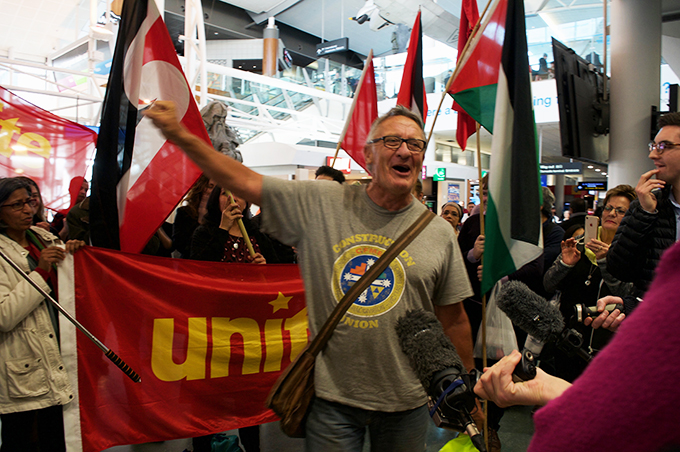
Unite union leader Mike Treen speaking to media at Auckland International Airport last week after being deported by Israel. Image: Rahul Bhattarai/PMC
Mike bleeding
Charlie was beaten up as well. Mike did not give way with being tasered in his lower limbs so he was tasered in his neck and face. Later on I saw bleeding on the left side of Mike’s face. He was semi-conscious when I examined him.
They broke into the wheelhouse by cutting the lock, forced the engine to be switched off and took down the Palestine flag before taking down the Norwegian flag and trampling on it.
They then cleared all people from the front half of the boat around the wheel house and moved them by force and coercion, throwing them to the rear of the deck. All were forced to sit on the floor at the back, except Gerd, Lucy and the vulnerable people who were seated around the table on wooden benches around her.
Israeli soldiers then formed a line sealing off people from the back and preventing them from coming to the front of the boat again.
As we entered the back of the deck we were all body searched and ordered to surrender our mobile phones or else they would take it by force. This part of search and confiscation was under the command of a woman soldier.
Apart from mobile phones – medicines and wallets were also removed. No one as of today (4 August 2018) got our mobile phones back.
I went to examine Mike and Charlie. Charlie had recovered consciousness and his wrists were tied together with plastic cable ties. Mike was bleeding from the side of his face, still not fully conscious. His hands were very tightly tied together with cable ties and the circulation to his fingers was cut off and his fingers and palm were beginning to swell.
At this stage the entire people seated on the floor shouted demanding that the cable ties be cut. It was about half an hour later before the ties were finally cut off from both of them.
Trampled flag
Around this time Charlie, the first mate, received the Norwegian flag. He was visibly upset telling all of us that the Norwegian flag had been trampled on. Charlie reacted more to the trampling of the Norwegian flag than to his own being beaten and tasered.
The soldiers then started asking for the captain of the boat. The boys then started to reply that they were all the captain. Eventually the Israelis figured out that Herman was the captain and demanded to take him to the wheelhouse. Herman asked for someone to come with him, and I offered to do so.
But as we approached the wheelhouse, I was pushed away and Herman forced into the wheelhouse on his own. Divina, the well known Swedish singer, had meanwhile broken free from the back and went to the front to look through the window of the wheel house.
She started to shout and cry, “Stop – stop they are beating Herman, they are hurting him.”
We could not see what Divina saw, but knew that it was something very disturbing. Later on, when Divina and I were sharing a prison cell, she told me they were throwing Herman against the wall of the wheel house and punching his chest. Divina was forcibly removed and her neck was twisted by the soldiers who took her back to the rear of the deck.
I was pushed back to the rear of the boat again. After a while the boat engine started. I was told later by Gerd who was able to hear Herman tell the story to the Norwegian Consul in prison that the Israelis wanted Herman to start the engine, and threatened to kill him if he would not do so.
But what they did not understand was that with this boat, once the engine stopped it can only be restarted manually in the engine room in the cabin level below.
Arne, the engineer, refused to restart the engine, so the Israelis brought Herman down and hit him in front of Arne making it clear that they will continue to hit Herman if Arne would not start the engine.
Engineer aged 70
Arne is 70 years old, and when he saw Herman’s face went ash colour, he gave in and started the engine manually. Gerd broke into tears when she was narrating this part of the story.
The Israelis then took charge of the boat and drove it to Ashdod.
Once the boat was on course, the Israeli soldiers brought Herman to the medical desk. I looked at Herman and saw that he was in great pain, silent but conscious, breathing spontaneously but shallow breathing.
The Israeli Army doctor was trying to persuade Herman to take some medicine for pain. Herman was refusing the medicine.
The Israeli doctor explained to me that what he was offering Herman was not army medicine but his personal medicine. He gave me the medicine from his hand so that I could check it. It was a small brown glass bottle and I figured that it was some kind of liquid morphine preparation probably the equivalent of oromorph or fentanyl.
I asked Herman to take it and the doctor asked him to take 12 drops after which Herman was carried off and slumped on a mattress at the back of the deck. He was watched over by people around him and fell asleep. From my station I saw he was breathing better.
With Herman settled I concentrated on Larry Commodore, the Native American leader and an environmental activist. He had been voted chief of his tribe twice. Larry has labile asthma and with the stress all around my fear was that he might get a nasty attack, and needed adrenaline injection.
Deep breathing
I was taking Larry through deep breathing exercises. However Larry was not heading for an asthmatic attack, but was engaging an Israeli who covered his face with a black cloth in conversation.
This man was obviously in charge.
I asked for the Israeli man with black mask his name and he called himself Field Marshal Ro…..Larry misheard him and jumped to conclusion that he called himself Field Marshal Rommel and shouted how can he an Israeli take a Nazi name.
“Field Marshal” objected and introduced himself as Field Marshal? Ronan. As I spelt out Ronan he quickly corrected me that his name is Ronen, and he, Field Marshal Ronen, was in charge.
The Israeli soldiers all wore body cameras and were filming us all the time. A box of sandwiches and pears were brought on deck for us. None of us took any of their food as we had decided we do not accept Israeli hypocrisy and charity.
Our chef Joergen had already prepared high calorie high protein delicious brownie with nuts and chocolate, wrapped up in tin foil to be consumed when captured, as we knew it was going to be a long day and night.
Joergen called it food for the journey. Unfortunately when I needed it most, the Israelis took away my food and threw it away. They just told me ”It is forbidden”. I had nothing to eat for 24 hours, refusing Israeli Army food and had no food of my own.
Total darkness
As we sailed towards Israel we could see the coast of Gaza in total darkness. There were 3 oil /gas rigs in the northern sea of Gaza. The brightly burning oil flames contrasted with the total darkness the owners of the fuel were forced to live in.
Just off the shore of Gaza are the largest deposit of natural gas ever discovered and the natural gas belonging to the Palestinians is already being siphoned off by Israel.
As we approached Israel, Zohar our boat leader suggested that we should start saying goodbye to each other. We were probably 2-3 hours from Ashdod. We thanked our boat leader, our captain, the crew, our dear chef, and encouraged each other that we will continue to do all we can to free Gaza and also bring justice to Palestine.
Herman, our captain, who managed to sit up now, gave a most moving talk and some of us were in tears.
We knew that in Ashdod there would be the Israeli media and film crews. We would not enter Ashdod as a people who had lost hope as we were taken captive. So we came off the boat chanting “Free Free Palestine” all the way as we came off.
Mike Treen, the union man, had by then recovered from his heavy tasering and led the chanting with his mega-voice and we filled the night sky of Israel with “Free Free Palestine” as we approached. We did this the whole way down the boat into Ashdod.
We came directly into a closed military zone in Ashdod. It was a sealed off area with many stations. It was specially prepared for the 22 of us. It began with a security x-ray area.
Money belt stolen
I did not realise they retained my money belt as I came out of the x-ray station. The next station was strip search, and it was when I was gathering up my belongings after being stripped when I realised my money belt was no longer with me.
I knew I had about a couple hundred euros and they were trying to steal it. I demanded its return and refused to leave the station until it was produced. I was shouting for the first time.
I was glad I did that as some other people were parted from their cash. The journalist from Al Jazeera, Abdul, had all his credit cards and US1800 taken from him, as well as his watch, satellite phone, his personal mobile, his ID. He thought his possessions were kept with his passport but when he was released for deportation he learnt bitterly that he only got his passport back.
All cash and valuables were never found. They simply vanished.
We were passed from station to station in this closed military zone, stripped searched several times, possessions taken away until in the end all we had was the clothes we were wearing with nothing else except a wrist band with a number on it. All shoe laces were removed as well.
Some of us were given receipts for items taken away, but I had no receipts for anything. We were photographed several times and saw two doctors. At this point I learnt that Larry was pushed down the gangway and injured his foot and sent off to Israeli hospital for check-up. His blood was on the floor.
I was cold and hungry, wearing only one teeshirt and pants by the time they were through with me. My food was taken away; water was taken away, all belongings including reading glasses taken away.
Toilet not allowed
My bladder was about to explode but I am not allowed to go to the toilet. In this state I was brought out to two vehicles – Black Maria painted gray. On the ground next to it were a great heap of ruqsacks and suit cases.
I found mine and was horrified that they had broken into my baggage and took almost everything from it – all clothes clean and dirty, my camera, my second mobile, my books, my Bible, all the medicines I brought for the participants and myself, my toiletries. The suitcase was partially broken.
My ruqsack was completely empty too. I got back two empty cases except for two dirty large man size teeshirts which obviously belonged to someone else. They also left my Freedom Flotilla teeshirt.
I figured out that they did not steal the Flotilla teeshirt as they thought no Israeli would want to wear that teeshirt in Israel. They had not met Zohar and Yonatan who were proudly wearing theirs.
That was a shock as I was not expecting the Israeli Army to be petty thieves as well. So what had become of the glorious Israeli Army of the Six Day War which the world so admired?
I was still not allowed to go to the toilet, but was pushed into the Maria van, joined by Lucia, the Spanish nurse, and after some wait taken to Givon Prison. I could feel myself shivering uncontrollably on the journey.
The first thing our guards did in Givon Prison was to order me to go to the toilet to relieve myself. It was interesting to see that they knew I needed to go desperately but had prevented me for hours to! By the time we were re-x-rayed and searched again it must have been about 5 – 6 am.
Rusty and dusty
Lucia and I were then put in a cell where Gerd, Divina, Sarah and Emelia were already asleep. There were three double decker bunk beds – all rusty and dusty.
Divina did not get the proper dose of her medicines; Lucia was refused her own medicine and given an Israeli substitute which she refused to take. Divina and Emelia went straight on to hunger strike.
The jailors were very hostile using simple things like refusal of toilet paper and constant slamming of the prison iron door, keeping the light of the cell permanently on, and forcing us to drink rusty water from the tap, screaming and shouting at us constantly to vent their anger at us.
The guards addressed me as “China” and treated me with utter contempt. On the morning of 30 July 2018, the British Vice-Consul visited me. Some kind person had called them about my whereabouts. That was a blessing as after that I was called “England” and there was a massive improvement in the way England was treated compared to the way China was treated.
It crossed my mind that “Palestine” would be trampled over, and probably killed.
At 6.30am, 31 July 2018, we heard Larry yelling from the men’s cell across the corridor that he needed a doctor. He was obviously in great pain and crying. We women responded by asking the wardens to allow me to go across to see Larry as I might be able to help.
We shouted “We have a doctor” and used our metal spoons to hit the iron cell gate get their attention. They lied and said their doctor would be over in an hour. We did not believe them and started again. The doctor actually turned up at 4 pm, about 10 hours later and Larry was sent straight to hospital.
Women punished
Meanwhile to punish the women for supporting Larry’s demand, they brought hand cuffs for Sarah and took Divina and me to another cell to separate us from the rest. We were told we were not going to be allowed out for our 30 minutes fresh air break and a drink of clean water in the yard. I heard Gerd saying “Big deal”.
Suddenly Divina was taken out with me to the courtyard and Divina given 4 cigarettes at which point she broke down and cried. Divina had worked long hours at the wheelhouse steering the boat. She had seen what happened to Herman.
The prison had refused to give her one of her medicines and given her only half the dose of the other. She was still on hunger strike to protest our kidnapping in international waters. It was heartbreaking to see Divina cry. One of the wardens, who called himself Michael, started talking to us about how he will have to protect his family against those who want to drive the Israelis out.
And how the Palestinians did not want to live in peace…and it was not Israel’s fault. But things suddenly changed with the arrival of an Israeli judge and we were all treated with some decency even though he only saw a few of us personally. His job was to tell us that a Tribunal will be convened the following day and each prisoner had been allocated a time to appear, and we must have our lawyer with us when we appear.
Divina by the end of the day became very giddy and very unwell so I persuaded her to come out of hunger strike, and also she agreed to sign a deportation order. Shortly after that possibly at 6 pm since we had no watches and mobile phones, we were told Lucia, Joergen, Herman, Arne, Abdul from Al Jazeera and I would be deported within 24 hours and we would be taken to be imprisoned in the deportation prison in Ramle near Ben Gurion airport immediately to wait there.
It was going to be the same Ramle Prison from which I was deported in 2014. I saw the same five strong old palm trees still standing up proud and tall. They are the only survivors of the Palestinian village destroyed in 1948.
When we arrived at Ramle prison Abdul found to his horror that he his money, his credit cards, his watch, his satellite phone, his own mobile phone, his ID card were all missing – he was entirely destitute.
We had a whip round and raised around 100 euros as a contribution towards his taxi fare from the airport to home. How can the Israeli Army be so corrupt and heartless to rob someone of everything?
Shocking behaviour
We, the six women on board al-Awda had learnt that they tried to completely humiliate and dehumanise us in every way possible. We were also shocked at the behaviour of the Israeli Army, especially petty theft and their treatment of international women prisoners. Men jailors regularly entered the women’s cell without giving us decent notice to put our clothes on.
They also tried to remind us of our vulnerability at every stage. We know they would have preferred to kill us but of course the publicity incurred in so doing might be unfavourable to the international image of Israel.
If we were Palestinians it would be much worse with physical assaults and probably loss of lives. The situation is therefore dire for the Palestinians.
As to international waters, it looks as though there is no such thing for the Israeli Navy. They can hijack and abduct boats and persons in international water and get away with it. They acted as though they own the Mediterranean Sea.
They can abduct any boat and kidnap any passengers, put them in prison and criminalise them.
We cannot accept this. We have to speak up, stand up against this lawlessness, oppression and brutality. We were completely unarmed.
Our only crime according to them is we are friends of the Palestinians and wanted to bring medical aid to them. We wanted to brave the military blockade to do this.
This is not a crime.
Palestinian toll
In the week we were sailing to Gaza, they had shot dead 7 Palestinians and wounded more than 90 with life bullets in Gaza. They had further shut down fuel and food to Gaza.
Two million Palestinians in Gaza live without clean water, with only 2-4 hours of electricity, in homes destroyed by Israeli bombs, in a prison blockaded by land, air and sea for 12 years.
The hospitals of Gaza since the 30 March had treated more than 9071 wounded persons, 4348 shot by machine guns from 100 Israeli snipers while they were mounting peaceful demonstrations inside the borders of Gaza on their own land.
Most of the gunshot wounds were to the lower limbs and with depleted treatment facilities the limbs will suffer amputation.
In this period more than 165 Palestinians had been shot dead by the same snipers, including medics and journalists, children and women.
The chronic military blockade of Gaza has depleted the hospitals of all surgical and medical supplies.
This massive attack on an unarmed Freedom Flotilla bringing friends and some medical relief is an attempt to crush all hope for Gaza. As I write, I learnt that our sister Flotilla boat, Freedom, has also been kidnapped by the Israeli Navy while in international waters.
But we will not stop, we must continue to be strong to bring hope and justice to the Palestinians and be prepared to pay the price, and to be worthy of the Palestinians. As long as I survive I will exist to resist. To do less will be a crime.
All crew and passengers on the Al Awda, including Kiwi human rights defender Mike Treen, have since been deported to their countries. Treen spoke last night at a packed public meeting in the Freemans Bay Community Centre. Those on board the second flotilla boat to be captured, the Freedom, are currently undergoing a similar process of being deported from an Israeli prison. Asia Pacific Report has shared information with the New Zealand humanitarian group Kia Ora Gaza.
Article by AsiaPacificReport.nz
]]>
![]() If the result is yes, the French territory will become a new Pacific country.
If the result is yes, the French territory will become a new Pacific country.




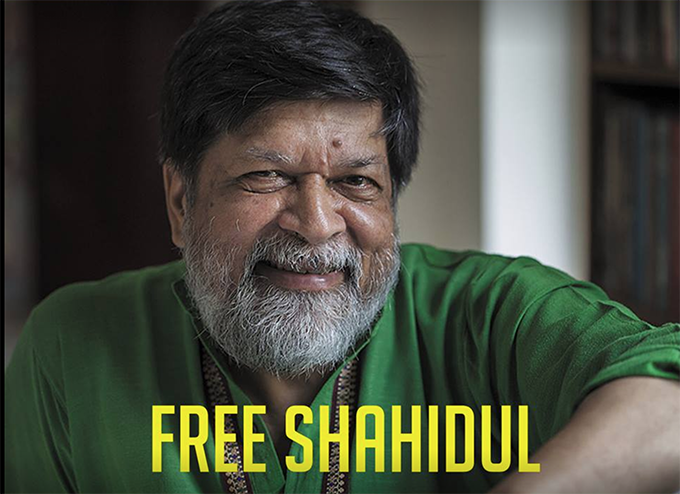

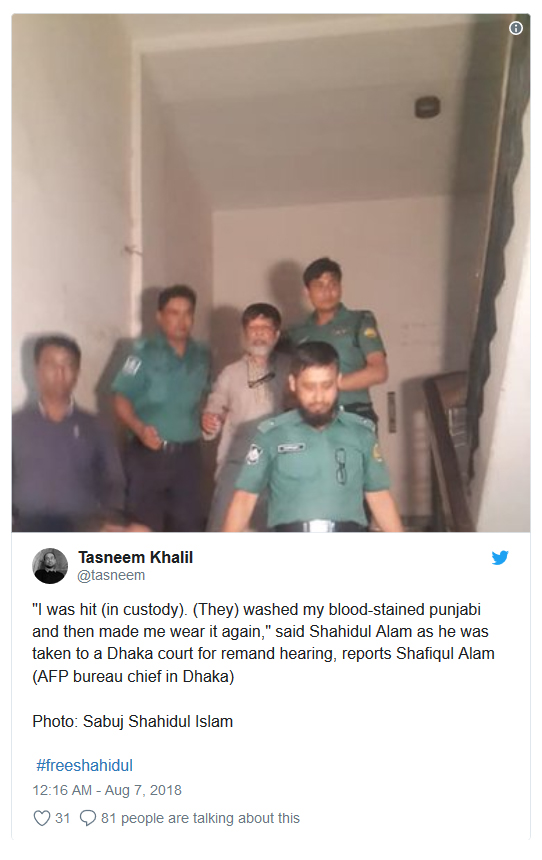
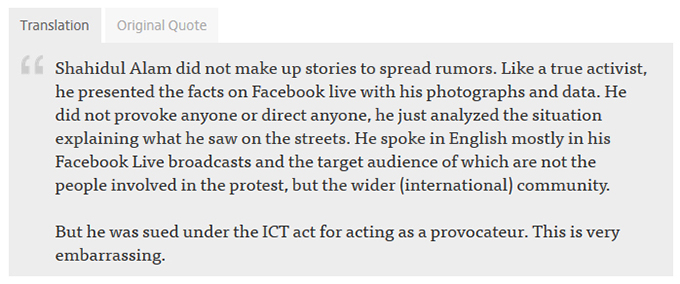


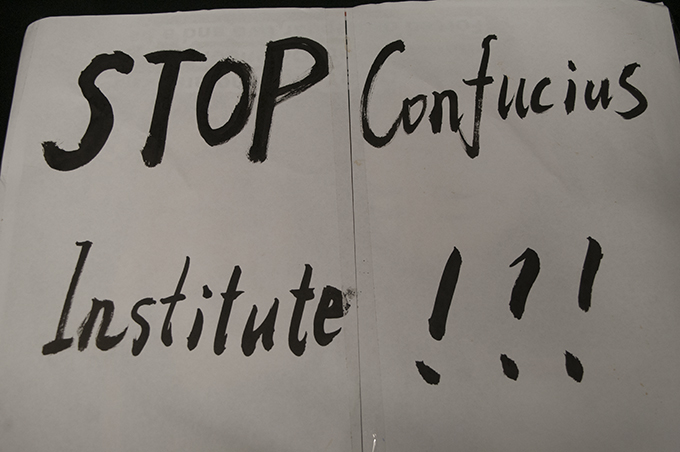 A Chinese protest placard among several against the Confucius Institutes on display at the end of the Auckland film screening. Image: Rahul Bhattarai/PMC
A Chinese protest placard among several against the Confucius Institutes on display at the end of the Auckland film screening. Image: Rahul Bhattarai/PMC


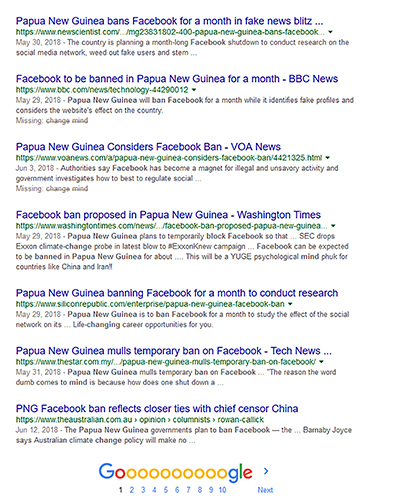 A horde of PNG “ban on Facebook” stories on Google, but stories on PNG’s subsequent back off in the proposal are hard to find. Image: PMC
A horde of PNG “ban on Facebook” stories on Google, but stories on PNG’s subsequent back off in the proposal are hard to find. Image: PMC

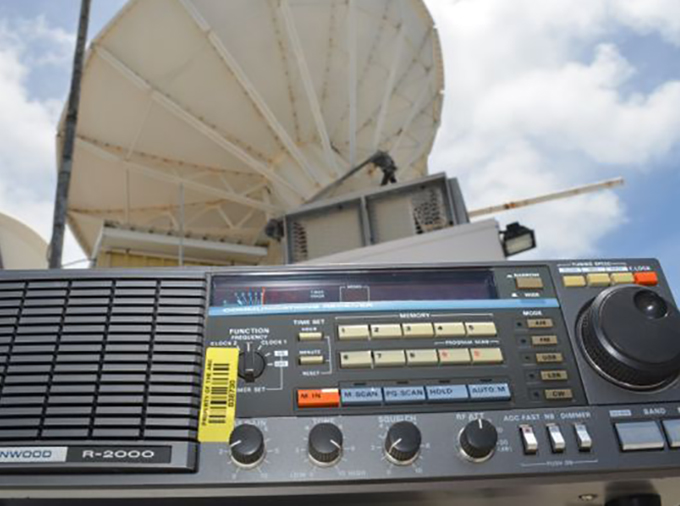

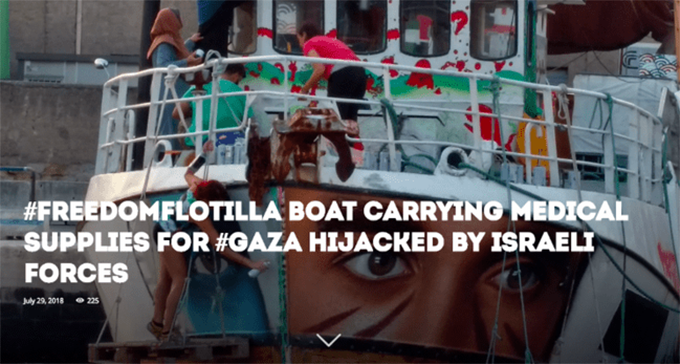 The Freedom Flotilla boat Al Awda, hijacked by Israeli forces while carrying humanitarian and medical supplies to the besieged enclave of Gaza Strip. Image: Freedom Flotilla Coalition
The Freedom Flotilla boat Al Awda, hijacked by Israeli forces while carrying humanitarian and medical supplies to the besieged enclave of Gaza Strip. Image: Freedom Flotilla Coalition
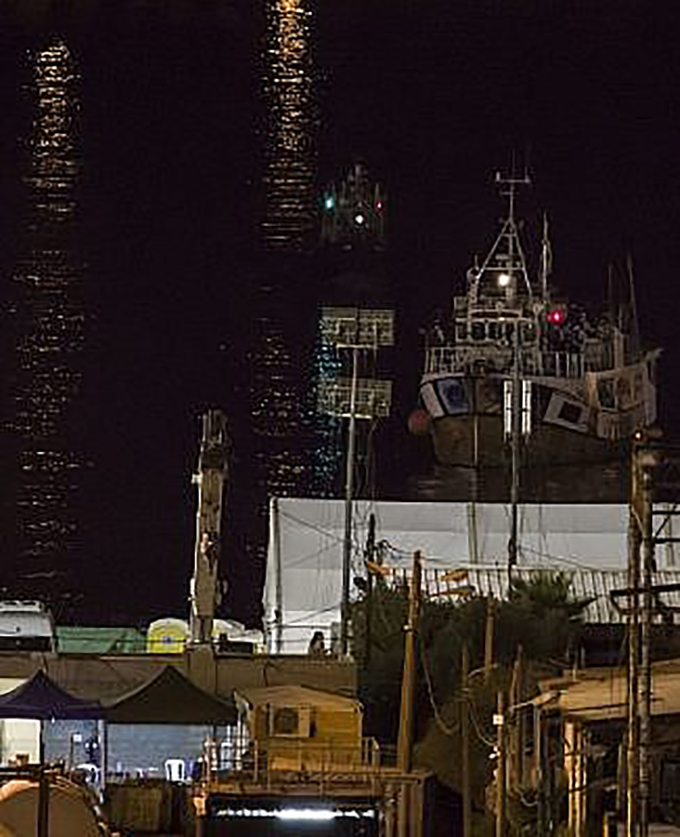 The “captive” ship Al Awda in the southern Israeli port of Ashdod. Image: Times of Israel
The “captive” ship Al Awda in the southern Israeli port of Ashdod. Image: Times of Israel


 NZ Press Gallery’s Stacey Kirk … “appalled by this attempt to control the media coverage”. Image: SK Twitter
NZ Press Gallery’s Stacey Kirk … “appalled by this attempt to control the media coverage”. Image: SK Twitter
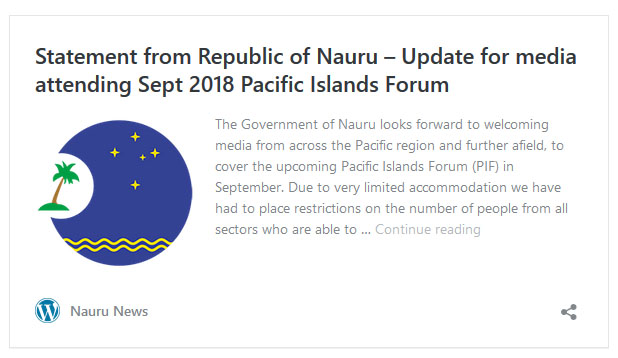 The Nauruan ban on the ABC. Source: Nauru Govt
The Nauruan ban on the ABC. Source: Nauru Govt



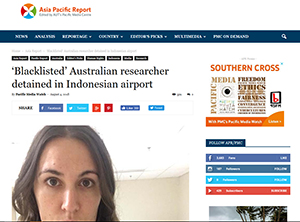 Saturday’s Asia Pacific Report.
Saturday’s Asia Pacific Report.

 Unite union leader Mike Treen speaking to media at Auckland International Airport last week after being deported by Israel. Image: Rahul Bhattarai/PMC
Unite union leader Mike Treen speaking to media at Auckland International Airport last week after being deported by Israel. Image: Rahul Bhattarai/PMC

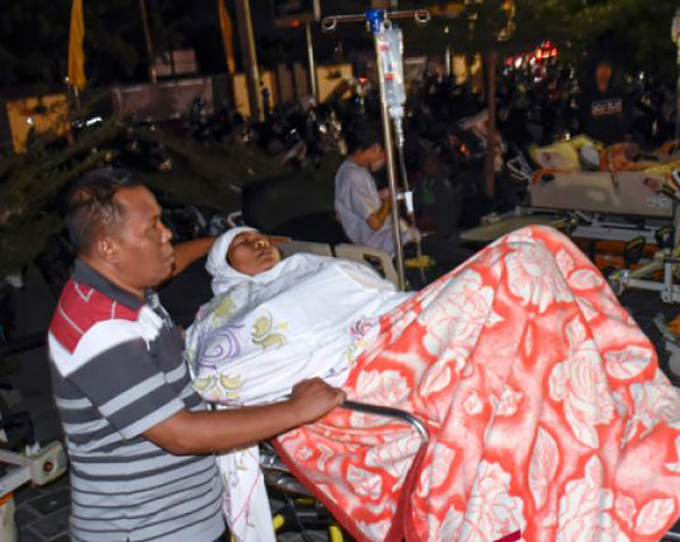

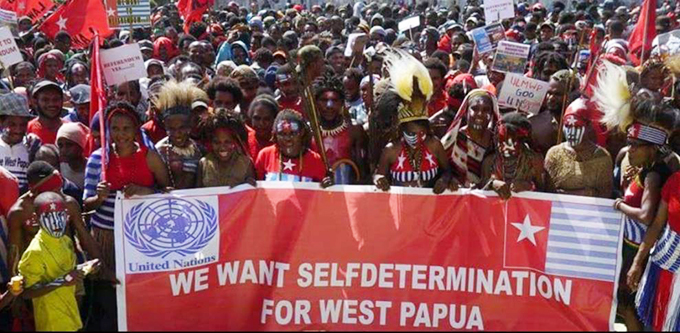 One of the rallies in West Papua.
One of the rallies in West Papua. 
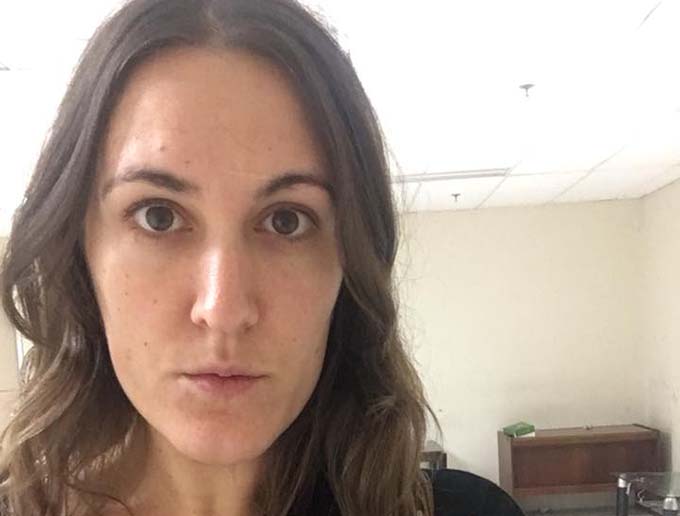
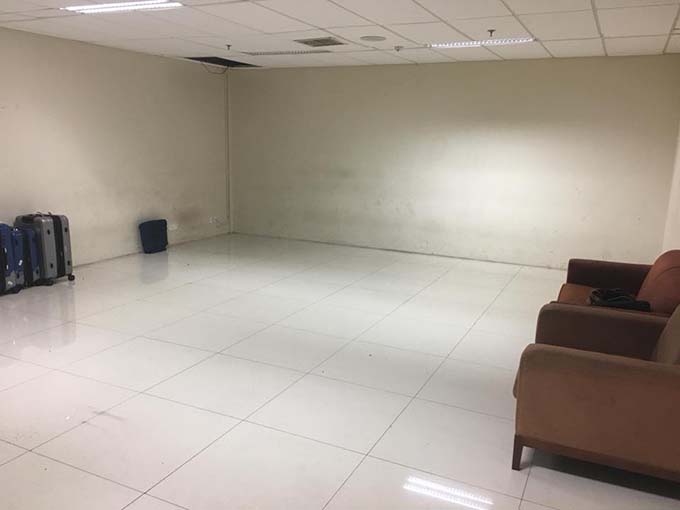 The room where Belinda Lopez is being detained at Bali’s Denpasar airport. Image: Belinda Lopez/FB
The room where Belinda Lopez is being detained at Bali’s Denpasar airport. Image: Belinda Lopez/FB

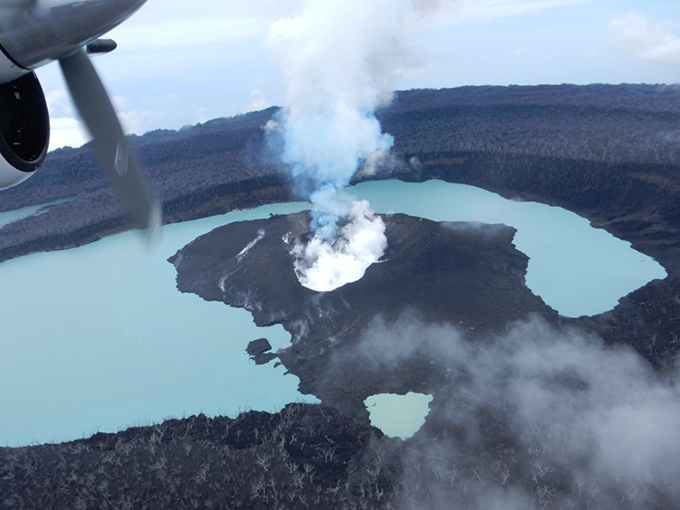

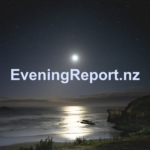
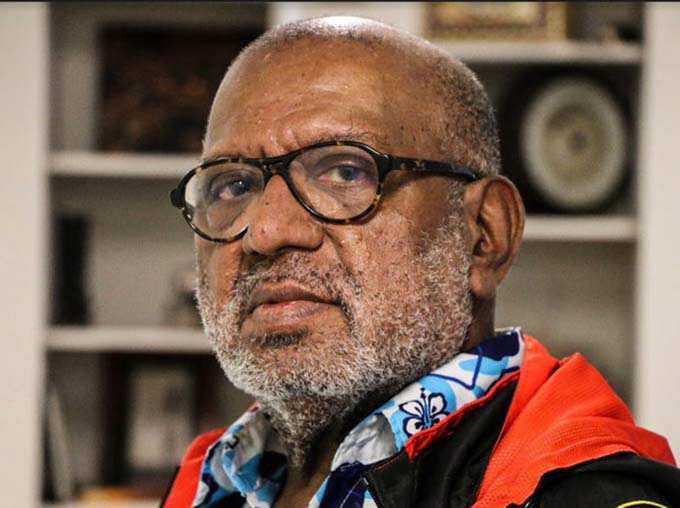 Franz Albert Joku … “Demographically, geographically, [Indonesia is] part of the Pacific. One third of the total area of the country, to the east, is inhabited by Melanesians and Polynesians.” Image: Koroi Hawkins/RNZ PacificIndonesia ‘part of Pacific’
Franz Albert Joku … “Demographically, geographically, [Indonesia is] part of the Pacific. One third of the total area of the country, to the east, is inhabited by Melanesians and Polynesians.” Image: Koroi Hawkins/RNZ PacificIndonesia ‘part of Pacific’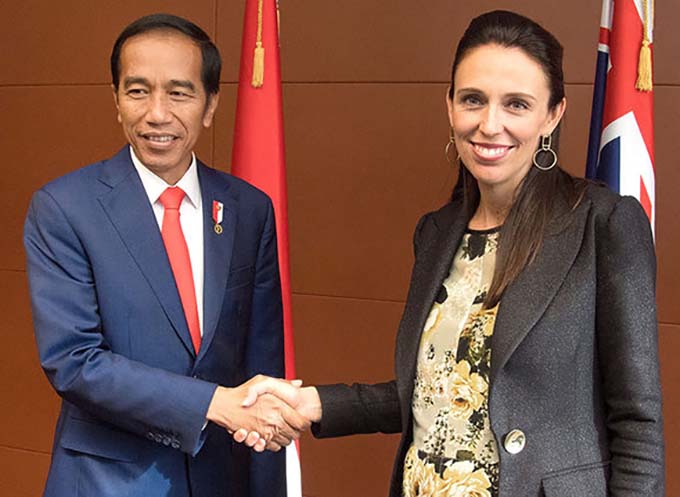 NZ Prime Minister Jacinda Ardern with President Joko Widodo … reaffirmed backing for Indonesia. Image: Marty Melville/Pool
NZ Prime Minister Jacinda Ardern with President Joko Widodo … reaffirmed backing for Indonesia. Image: Marty Melville/Pool

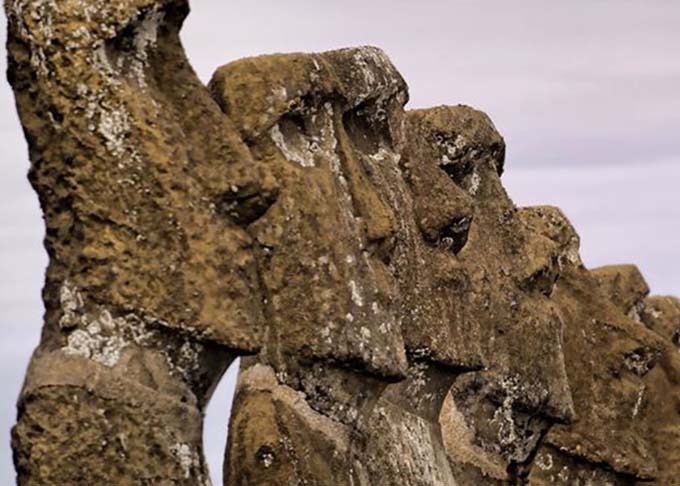

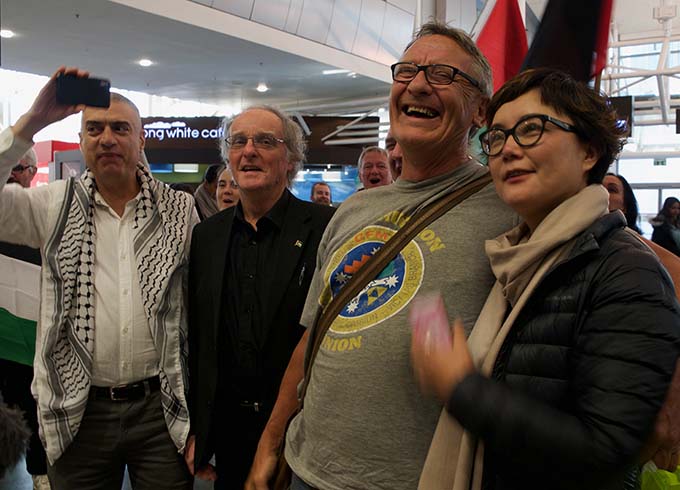
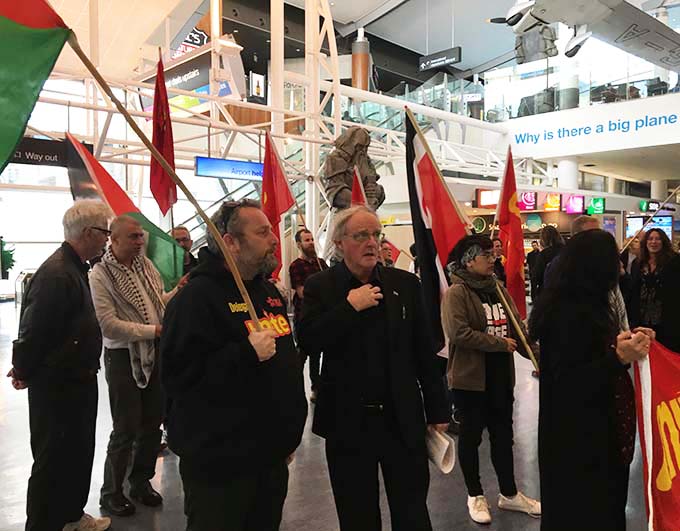 Free Palestine and Free Gaza supporters gathered at Auckland International Airport to welcome home union leader Mike Treen, deported by Israel for trying to breach the illegal Gaza blockade. Image: Rahul Bhattarai/PMC
Free Palestine and Free Gaza supporters gathered at Auckland International Airport to welcome home union leader Mike Treen, deported by Israel for trying to breach the illegal Gaza blockade. Image: Rahul Bhattarai/PMC

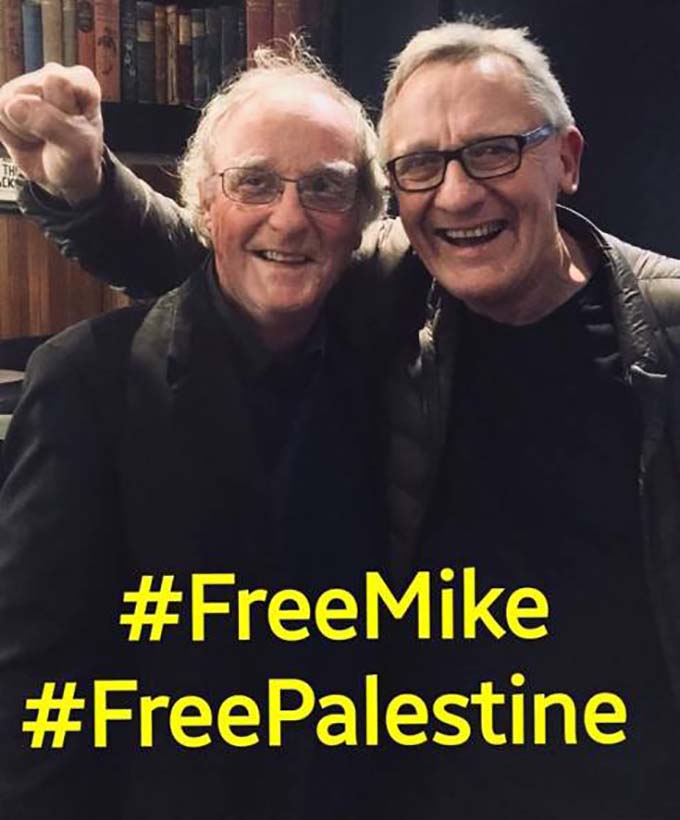

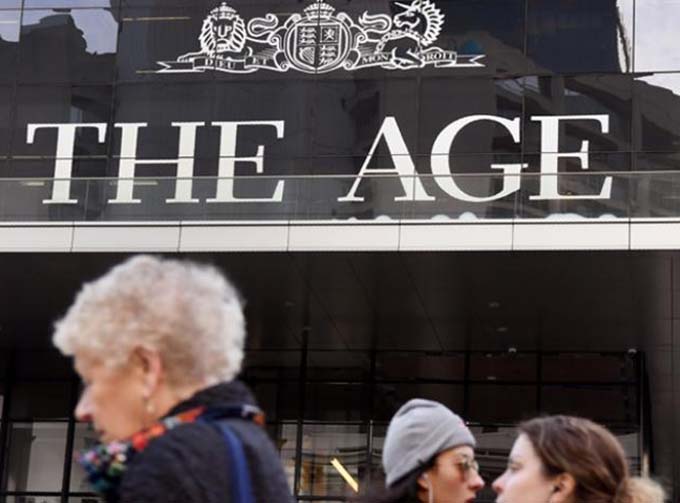
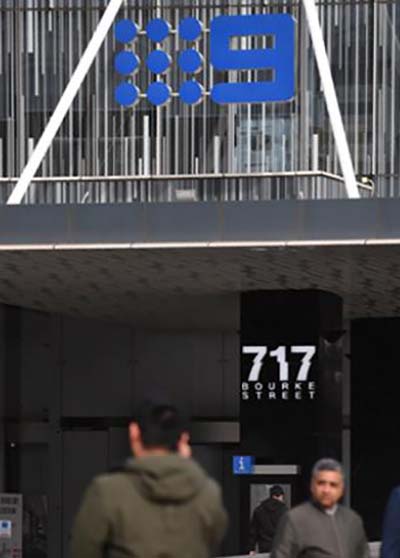 “Nine, which will have control of the new entity, has already announced A$50 million (32 million euros) in budget cuts, to the alarm of news staff at Fairfax’s publications.” Image: RSF
“Nine, which will have control of the new entity, has already announced A$50 million (32 million euros) in budget cuts, to the alarm of news staff at Fairfax’s publications.” Image: RSF






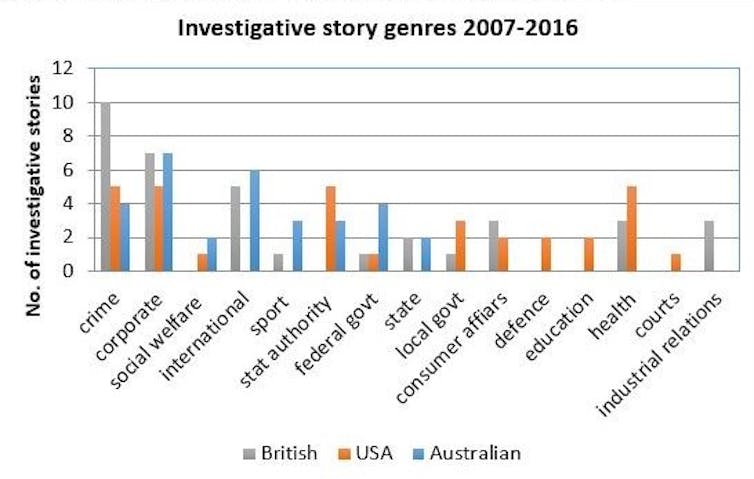 Investigative story targets in three countries: 2007-2016; n=100. Andrea Carson/Journalism Studies
Investigative story targets in three countries: 2007-2016; n=100. Andrea Carson/Journalism Studies
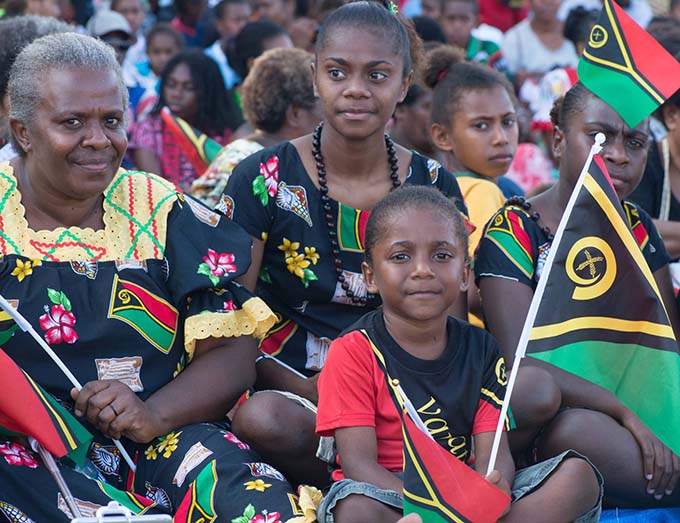
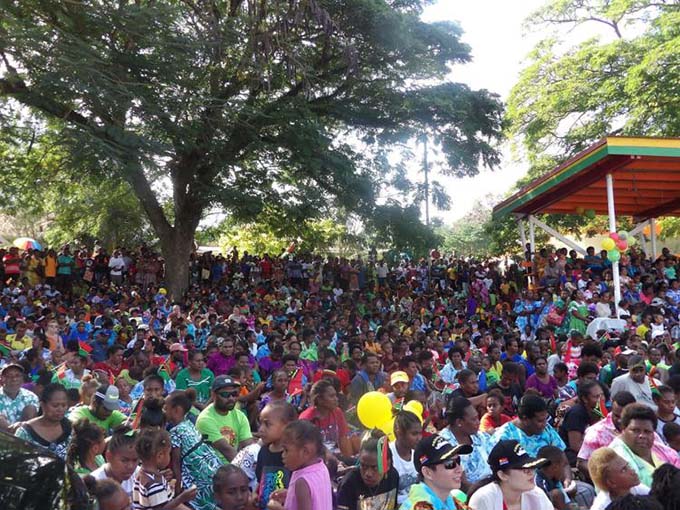 The crowd in Port Vila’s Independence Park yesterday. Image: Vanuatu Daily Post
The crowd in Port Vila’s Independence Park yesterday. Image: Vanuatu Daily Post
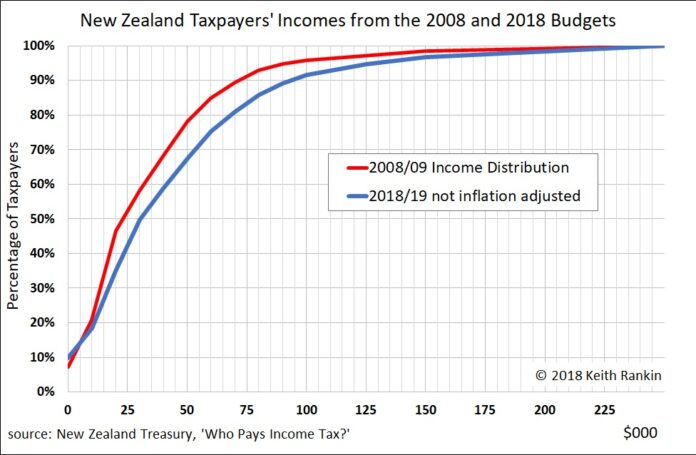

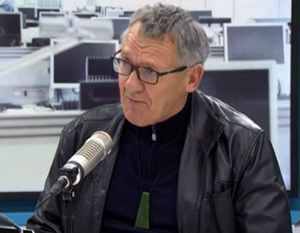 Unite Union leader Mike Treen … attacked and detained, says union.
Unite Union leader Mike Treen … attacked and detained, says union.




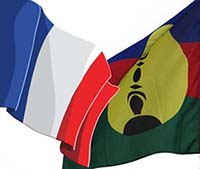 New Caledonia: What next? Part 3 of Lee Duffield’s series
New Caledonia: What next? Part 3 of Lee Duffield’s series
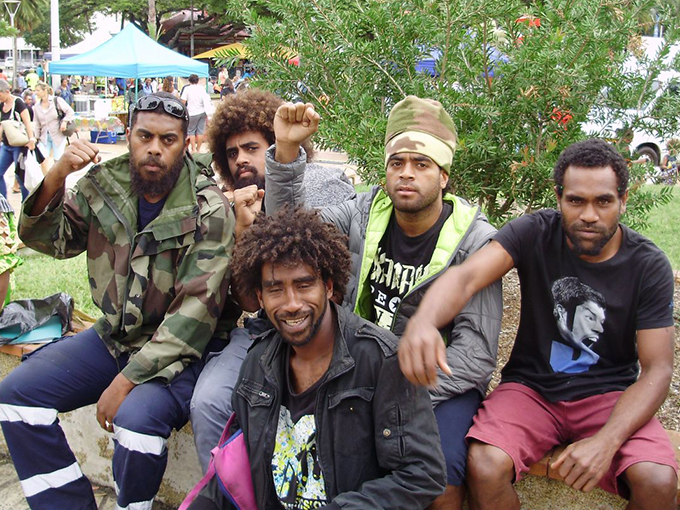 Five Kanak school leavers in Noumea’s main park, Place des Cocotiers – Kanaky Daita Weinane, Edouard Kate, Eta Roine, Noel Wazone and Siwene Wayaridge … all back independence. Image: Lee Duffield
Five Kanak school leavers in Noumea’s main park, Place des Cocotiers – Kanaky Daita Weinane, Edouard Kate, Eta Roine, Noel Wazone and Siwene Wayaridge … all back independence. Image: Lee Duffield


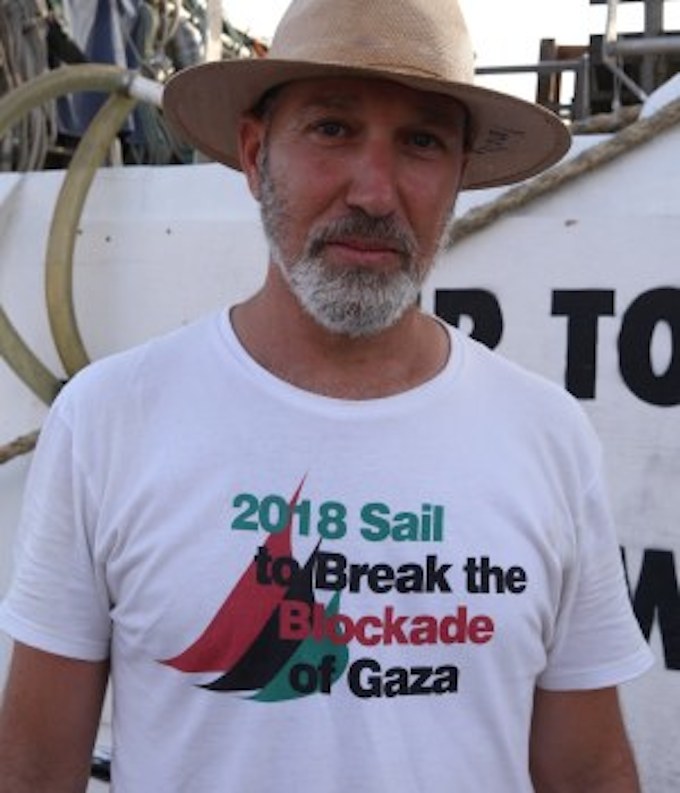




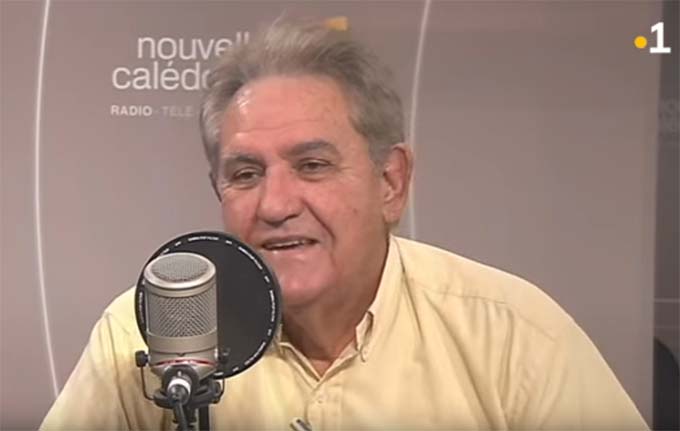 Historian Luc Steinmetz … France “did not want to provide loudspeakers to voices that would be too critical.” Image: France TV 1
Historian Luc Steinmetz … France “did not want to provide loudspeakers to voices that would be too critical.” Image: France TV 1
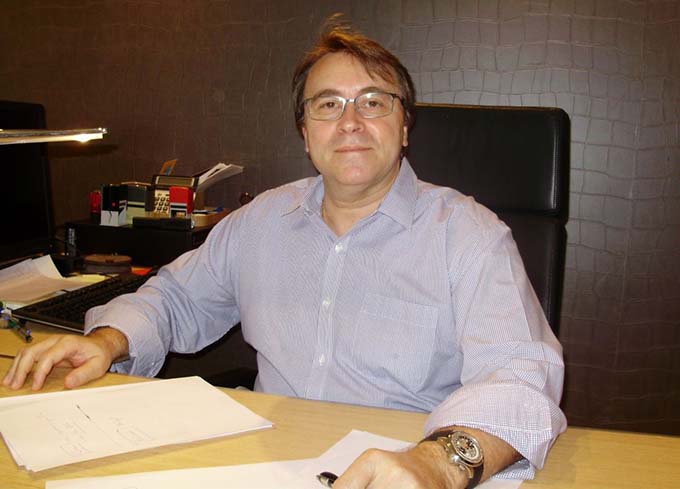 French lawyer Philippe Bernigaud representing indigenous Kanak groups negotiating over land rights. He has lived in Noumea for 17 years but cannot vote in the referendum. Image: Lee Duffield
French lawyer Philippe Bernigaud representing indigenous Kanak groups negotiating over land rights. He has lived in Noumea for 17 years but cannot vote in the referendum. Image: Lee Duffield
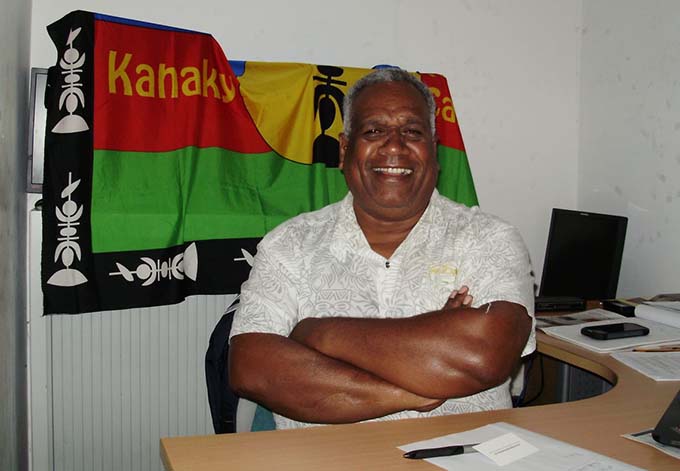 Kanak community leader and Radio Djiido coordinator Andre Qaeze Ihnim … sharing is key to the Melanesian way of life and is the main argument of the Kanak political organisation, the Kanak and Socialist National Liberation Front – FLNKS. Image: Lee Duffield
Kanak community leader and Radio Djiido coordinator Andre Qaeze Ihnim … sharing is key to the Melanesian way of life and is the main argument of the Kanak political organisation, the Kanak and Socialist National Liberation Front – FLNKS. Image: Lee Duffield

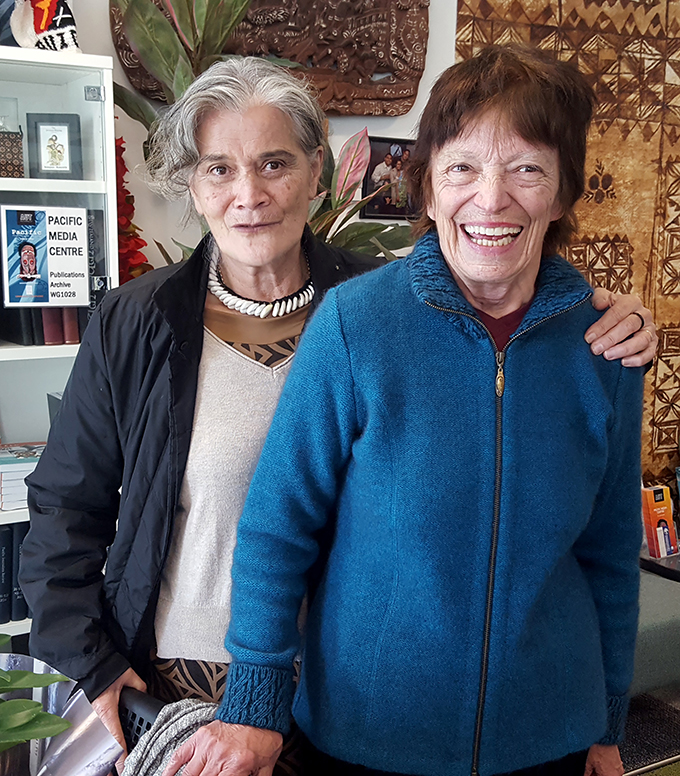
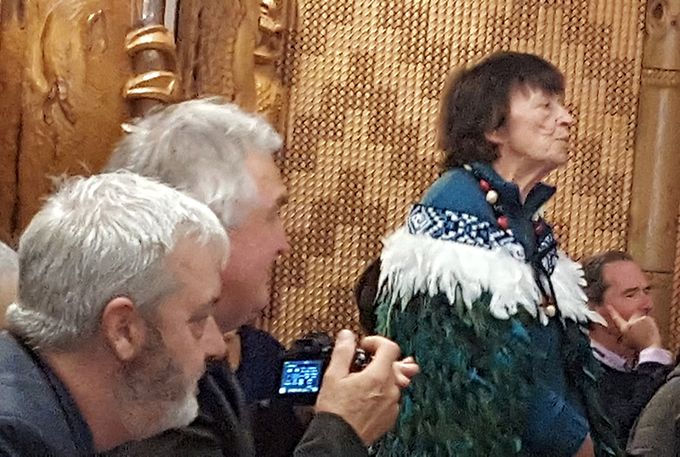 Tui O’Sullivan at her recent Auckland University of Technology farewell on Ngā Wai o Horotiu marae. Image: Del Abcede/PMC
Tui O’Sullivan at her recent Auckland University of Technology farewell on Ngā Wai o Horotiu marae. Image: Del Abcede/PMC
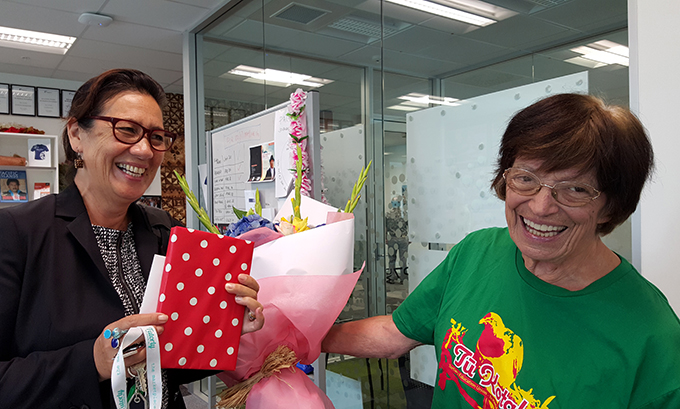 Tui O’Sullivan (right) with fellow foundation Pacific Media Centre advisory board member Isabella Rasch. Image: Del Abcede/PMC
Tui O’Sullivan (right) with fellow foundation Pacific Media Centre advisory board member Isabella Rasch. Image: Del Abcede/PMC
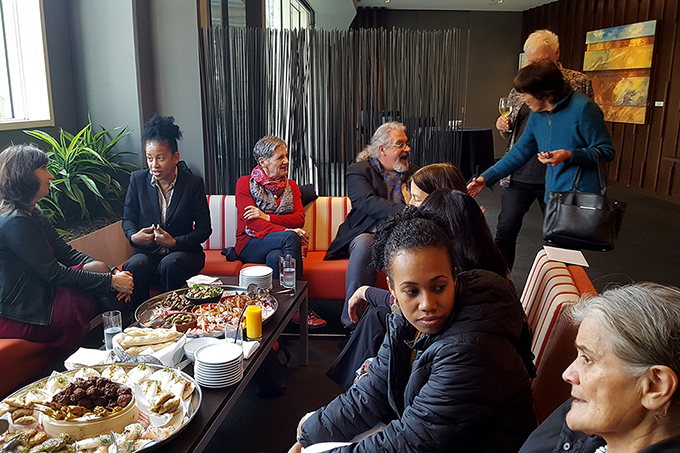 Students and staff at the Pacific Media Centre’s farewell for Tui O’Sullivan. Image: Del Abcede/PMC
Students and staff at the Pacific Media Centre’s farewell for Tui O’Sullivan. Image: Del Abcede/PMC
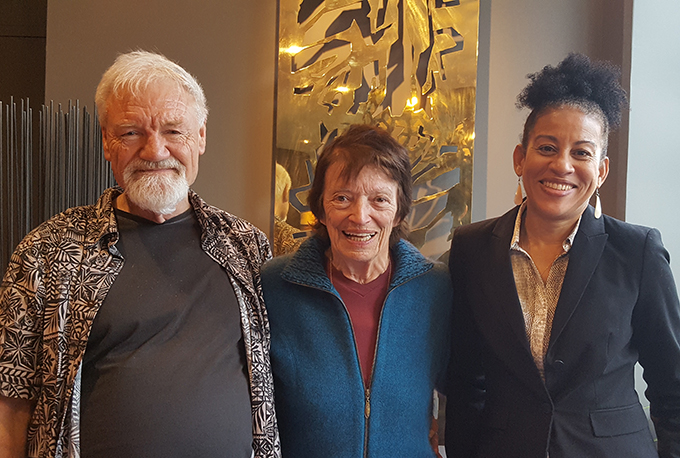 Tui O’Sullivan (centre) with Pacific Media Centre director Professor David Robie and advisory board chair Associate Professor Camille Nakhid. Image: Del Abcede/PMC
Tui O’Sullivan (centre) with Pacific Media Centre director Professor David Robie and advisory board chair Associate Professor Camille Nakhid. Image: Del Abcede/PMC

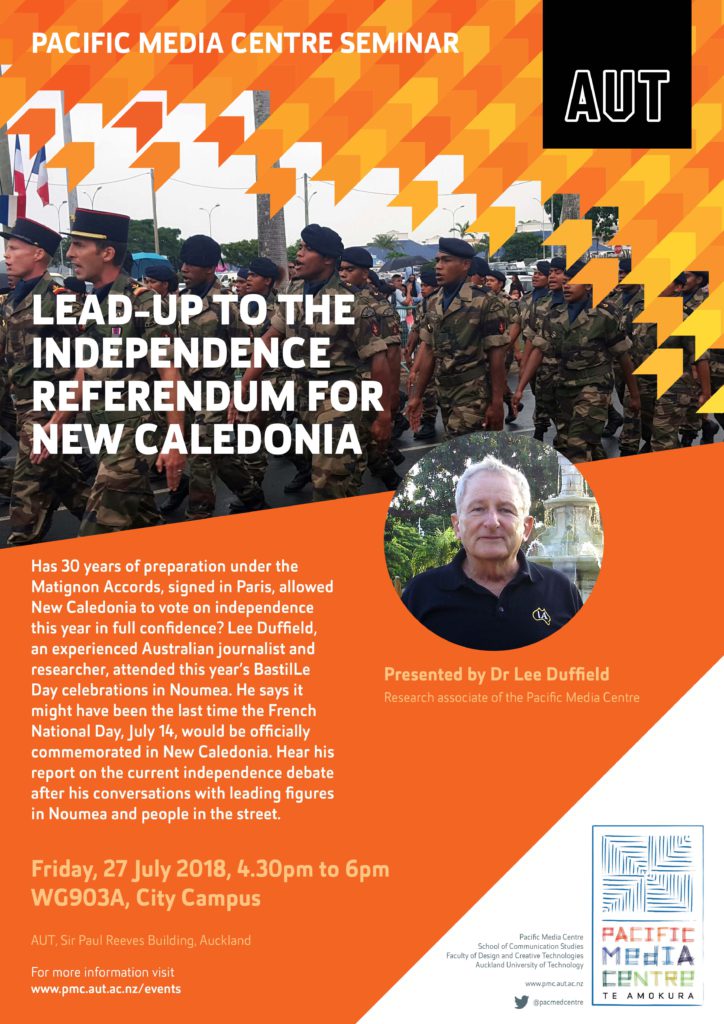 Dr Lee Duffield’s New Caledonia seminar to be hosted by the Pacific Media Centre at Auckland University of Technology today.
Dr Lee Duffield’s New Caledonia seminar to be hosted by the Pacific Media Centre at Auckland University of Technology today.
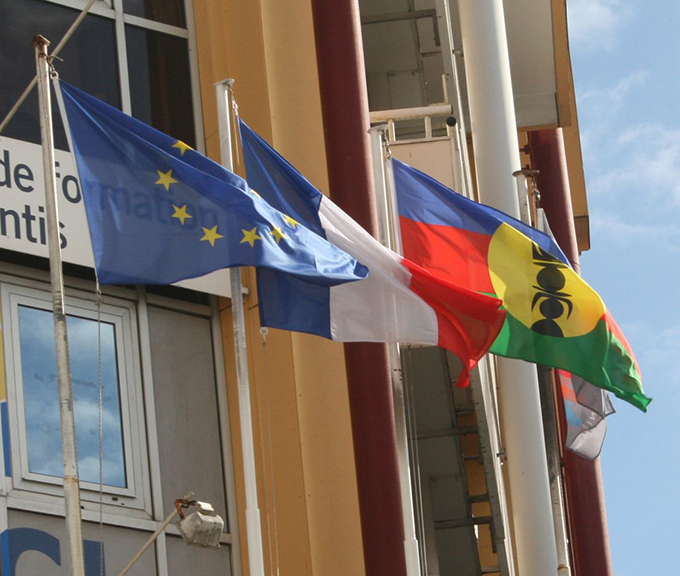 Three flags of Noumea – European Union, French tricolour and the independent Kanak ensign. Image: Lee Duffield
Three flags of Noumea – European Union, French tricolour and the independent Kanak ensign. Image: Lee Duffield




